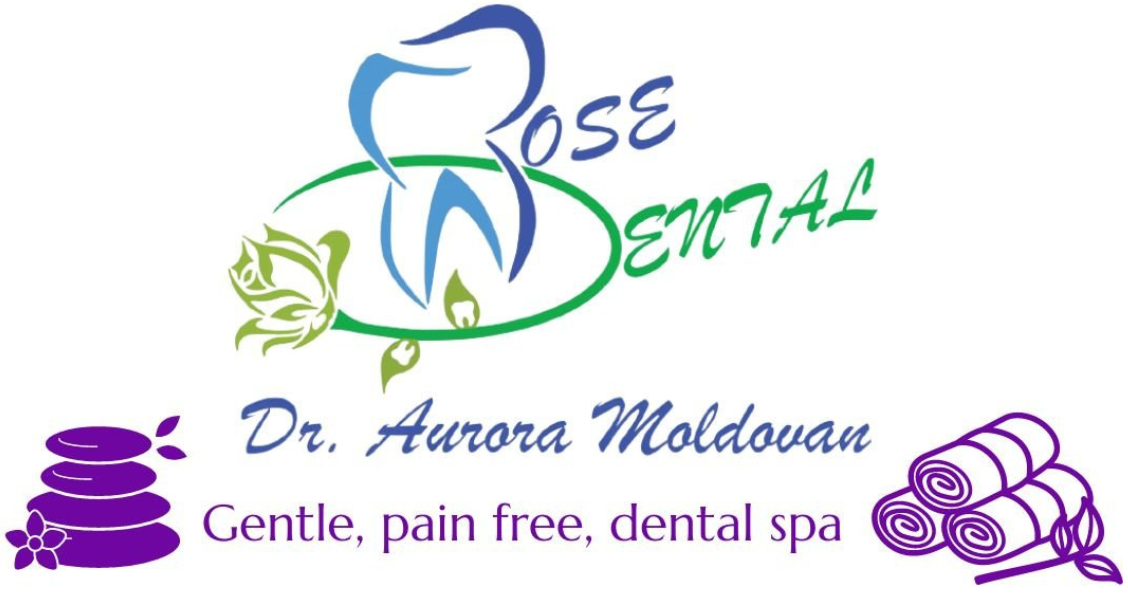

The Signs And Symptoms Of Tooth Sensitivity
To get right to the point, tooth pain happens when the nerves in your teeth become irritated. Normally, our teeth are covered in a protective layer of enamel. On the inside, there is a layer of material called dentin and then the pulp at the core of the tooth which is filled with connective tissue, blood vessels and the nerve of the tooth. If enamel becomes too thin or there’s a breach exposing the dentin, the nerve is no longer protected. Tooth sensitivity is most commonly caused by any number of practices or conditions that erode or damage tooth enamel.
The many ways that tooth enamel can become damaged:
- Drinking or eating acidic foods and beverages– especially before bed.
- Skipping routine tooth care including flossing!
- Brushing aggressively or using a hard toothbrush.
- Attempting to use professional dental tools at home.
- Health issues (like bulimia or acid reflux) which expose teeth to stomach acid.
- Untreated gum disease and gum recession.
- Damaged, cracked or chipped teeth.
- Dental cavities (especially if left untreated).
- Using tobacco products, cannabis products or vaping.
- Grinding or clenching your teeth.
- Overuse of some teeth whitening products.
What Can You Do About Sensitive Teeth?
The initial and crucial step to take when encountering dental pain or discomfort is to visit the dentist. This visit enables us to identify and address any potential underlying causes of your tooth pain, as well as provide recommendations for treating any detected damage or decay. By obtaining a formal diagnosis, you can proceed with confidence, knowing that you are on the right path. Let’s now examine the entire process in detail:
Figure out the underlying cause
We won’t make any assumptions. As part of your examination, you will be asked to describe the sensitivity and its frequency. You may need new X-rays, and the dentist will conduct a thorough examination of your teeth and gums. Additional diagnostic tests, such as the tap or cold test, may also be used to aid in your diagnosis.
Treatment in the office
Damaged or decayed teeth can be treated using various restorative options, ranging from simple fillings to more intricate procedures like crowns. In cases of worn enamel, you might be able to address it at home, but there are also in-office treatments to consider. We will thoroughly discuss all available options with you, and ultimately, the decision will be yours to make.
Personalized Advice
As evident from the various potential causes of tooth sensitivity, a dental examination is crucial for pinpointing the specific issue. Following the exam, your dentist can provide personalized tips and tricks to strengthen your enamel at home and prevent future tooth decay.
Contact us today
to schedule an initial consultation & exam.
Your consultation will include an examination of everything from your teeth, gums and soft tissues to the shape and condition of your bite. Generally, we want to see how your whole mouth looks and functions. Before we plan your treatment we want to know everything about the health and aesthetic of your smile, and, most importantly, what you want to achieve so we can help you get there.
Frequently Asked Questions
Enhancing your at-home dental hygiene practices can, in certain instances, alleviate tooth sensitivity. By maintaining a level of cleanliness that prevents further erosion and decay, your enamel may have the capacity to undergo healing. Fluoride treatment can significantly aid in this process. However, it’s important to note that dental pain serves as a natural indicator of an underlying issue that requires attention. If your enamel has deteriorated to the point where the dentin is exposed, you may be at risk of developing an infection or abscess and should seek professional evaluation.
Replace your toothbrush with one that has soft bristles. Brush twice daily using desensitizing toothpaste and gently clean along the gumline. Floss regularly and rinse with a fluoridated mouthwash. Limit consumption of acidic and sweet foods and drinks, especially before bedtime. If you notice yourself clenching or grinding your teeth, consider practicing mindfulness or other relaxation techniques to alleviate jaw tension. To permanently address sensitive teeth, it’s crucial to visit the dentist for a thorough examination to identify and resolve the underlying cause.
Stress can indirectly contribute to tooth sensitivity. Individuals experiencing heightened stress levels may neglect their regular oral hygiene routines, consume more sugary or acidic foods, or increase their smoking habits. Moreover, stress can lead to teeth grinding or clenching, a behaviour that individuals may exhibit unconsciously, even while asleep.
Acids wear down the enamel. Sweet and starchy foods feed the bacteria in your mouth which produces an acidic byproduct that wears down enamel. Hard foods can also wear away your enamel or risk damaging a tooth.
– Acidic foods: Coffee, wine and other alcohols, fruit juice and fruits (especially citrus!), soda pop, tomatoes, pickles and vinegar.
– Sweet foods: chocolate, jams and jellies, caramel, sugar, hard candies, ice cream and an extra special second mention for juice and soda!
Simple starches: donuts, cake, bread, potato chips, crackers and cookies.
– Hard foods: chewing on ice, chewing hard candies, chewing foods that may contain a pit or hard kernel such as popcorn, cherries and olives.
– This doesn’t mean you need to avoid all these foods. Simply practice moderation and routinely clean your teeth, especially before bed.
Remember, you want low-acid, low-sugar drinks, snacks and meals. High fibre foods are excellent for your teeth and so is dairy because it promotes saliva production. Try to eat a nutritious, varied diet with plenty of protein and calcium. Here are some of the foods you can enjoy:
– Drinks: Water, green tea, black tea.
– Snacks: Raisins and nuts, celery and carrot sticks, apple slices. Cheese.
– Supper: Stir-fries, salads, wraps, meat and potatoes with a side of veggies.
– Dessert: Yogurt, ricotta and berries, apple sauce.
What Our Patients Are Saying
Absolutely Amazing

Quick, Painless and Wonderful Procedure

Very Professional and Relaxing


